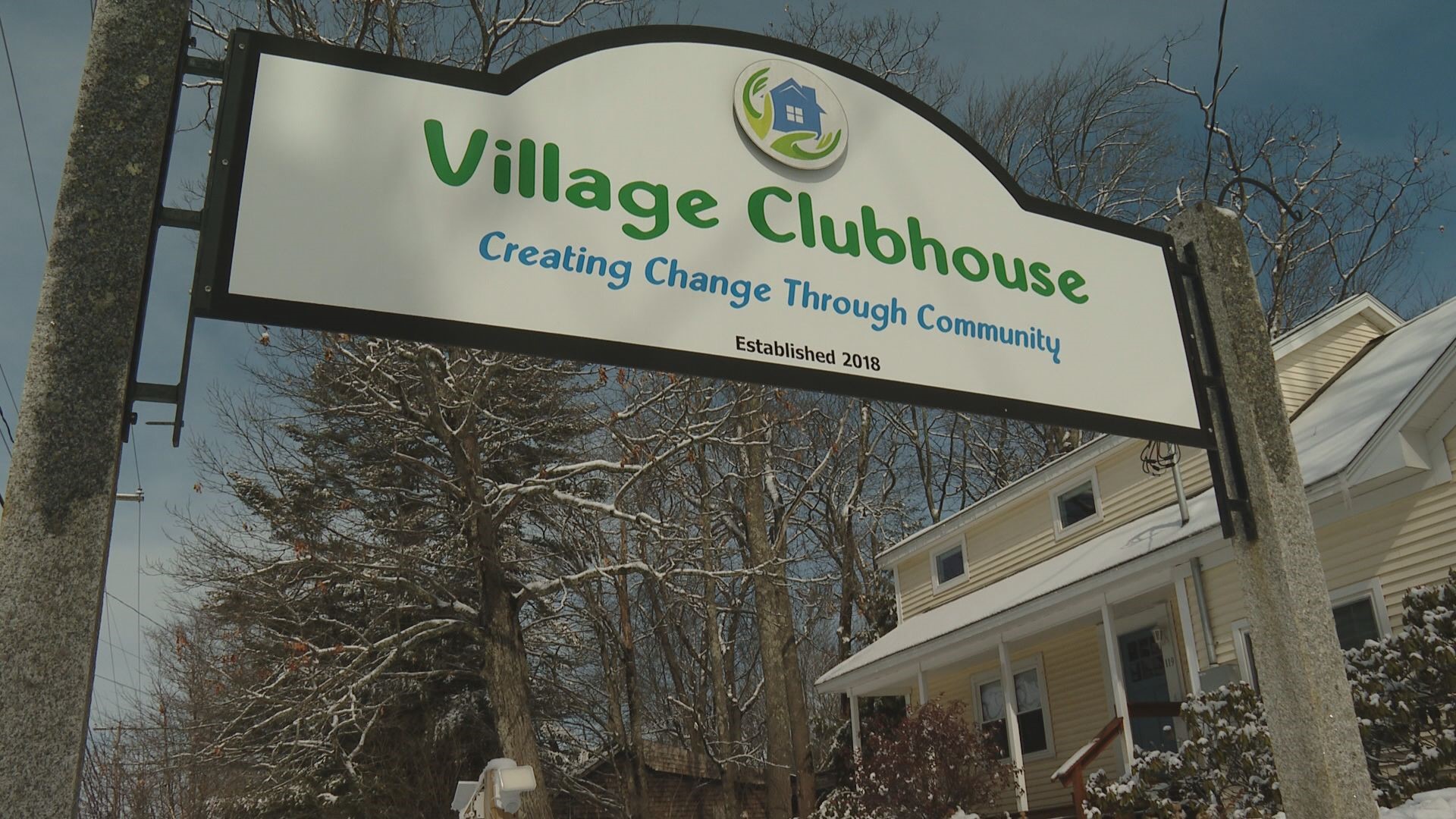TOPSHAM, Maine — Firsts are never easy. First steps, that first job interview, first dates. For folks who struggle with persistent mental illness, firsts present enormous challenges.
Often, those diagnoses keep people from leading a fuller life. At The Village Clubhouse in Topsham, members who struggle with mental illness can take that first step toward re-building their confidence.
On the morning when 207 visited, the Village Clubhouse is humming with activity. Every member is here voluntarily, and together with the staff they are busy with the countless tasks it takes to keep this place running.
This is a clubhouse that needs to be run and relies on its members to do so.
"We’re purposefully understaffed ... so that members can have a sense of urgency to the work and they know that they’re needed and wanted and expected," Village Clubhouse Director Candy Lessard said. "Because without the membership there’s no way we could possibly do all the work in the clubhouse."
Each member has a diagnosis of a persistent mental illness – such as schizophrenia, bipolar disorder, major depression or anxiety – which put their life on hold. They’ve come here to gain skills, build community, and prepare to enter the workforce.
"Just because you have a mental health diagnosis doesn’t mean you aren’t capable of really meaningful work. And the Clubhouse really works hard at helping members see that in themselves," Lessard said.
The work here is designed to build confidence. The members take on tasks, such as answering phones, tracking employment records, and administrative work that goes along with running any business. They also staff the kitchen, prepare meals, and keep the place clean.
The Clubhouse is not a residential facility, however. It is open from 7:30 a.m. until 4 p.m., mimicking a typical work day.
Amanda Kinsey is the Village Clubhouse Assistant Director.
"A lot of our folks will set a schedule, and we really want them to do that, not for our sake but for theirs," Kinsey said. "You know, when you think about your life has been so unstructured, you don’t have work, you’re not in school, you have nowhere to be, you have no reason to get up in the morning, setting that routine and sticking to it is such a valuable skill. And it helps people get ready for work."
The cornerstone of the Clubhouse model is a program called Transitional Employment, or T-E. T-E works like this: The Clubhouse develops partnerships with local employers with available jobs. As a result of this relationship, members are hired, get paid by that employer, and gain valuable job training and experience. The staff at the Clubhouse learn the job first and provides all the transportation and training. Staff also provide absentee coverage if a member cannot work a scheduled shift.
"A lot of times, our folks will have been hospitalized, [whether] for a mental health event, for a crisis incident. And explaining that gap to an employer can be really challenging and continue that stigma. [With] transitional, they don’t have to explain it. They just go to work. They have a job coach there that knows them, because we’ve worked with them here," Kinsey said.
Dan Wheatley came through the doors as a member but now assists staff and helps with transportation. He remembers how it felt to come to the Clubhouse for the first time.
"I was at a very low point in my life," Wheatley said. "I had struggled for about 10 years with being very agoraphobic, so I wouldn’t get out at all. I was pretty limited."
He has been around long enough to see how the program works, both for himself and for other members.
"You know it really is extremely rewarding to see the growth of people who have struggled for so long and even overcoming, you know, just the simple basics, of just coming and just experiencing the idea of everyday life again, which is really important," Wheatley said. "Routine is so important. Because that’s the one thing mental illness robs people of is routine. We build that routine here."
Members choose their own schedule, who they want to work with, and what tasks they want to learn.
"Being treated with dignity and respect and providing a sense of empowerment for an individual is really I think what keeps people coming back," Lessard said. "That’s really kind of the heart of the clubhouse: having a place of purpose and meaning and feeling like you’re part of the community and you’re living your best life. And you’re giving back. And you’re capable of more than just, you know, you’re not living according to your diagnosis. You are a person."
The work of the Clubhouse is to address the stigma around mental illness.
"It used to be ‘so-in-so IS schizophrenic…’ and taking that language away and saying ‘so-in-so HAS schizophrenia but that’s only a small part," Kinsey said. "We really want to lower the stigma, reduce that, so people feel more comfortable seeking treatment and living the kind of life that they want to live and they deserve to live."
It was Wheatley who we met in the story who originally wrote and said, “I’d like to tell you about the best kept secret for folks who struggle with mental illness.”
The Clubhouse hopes the program will no longer be a secret and are eager to work to dispel the stigma around mental illness.
There are 300 Clubhouses worldwide, and six of them are right here in Maine. The Clubhouse is free to members and largely funded through Maine Care and grant funding.
To learn more about The Village Clubhouse, click here.
There are 300 Clubhouses Internationally - to learn more about the Clubhouses around the world, click here.
To find a Clubhouse near you, click here.
Kennebec Behavioral Health operates four of the six Clubhouses in Maine. To learn more about KBH, click here.

